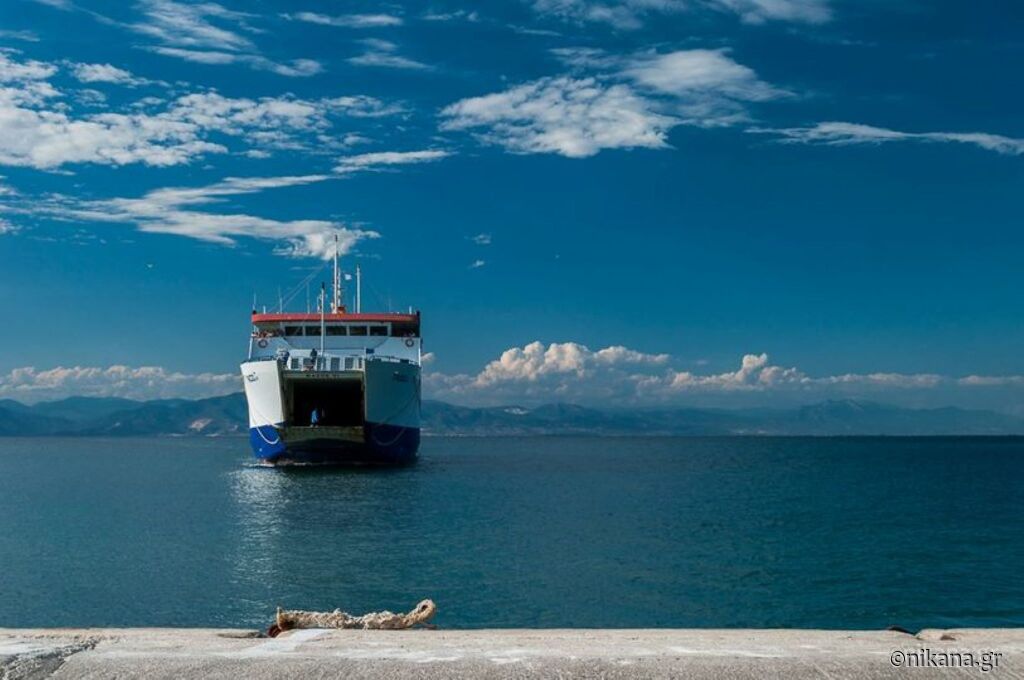Rules for transporting cars by ferry in Greece
In Greece, a new law of the Ministry of Maritime Affairs and the Coast Guard regarding the transport of vehicles with alternative fuels on ships has come into force.
Vehicles with alternative fuels include
a) exclusively electric and rechargeable hybrid vehicles containing batteries and
b) vehicles using liquid or natural gas.
The guidelines are based on a study by the European Maritime Safety Agency (EMSA) and previous international experience.
Guidelines for drivers of such vehicles are as follows:
a) In pure electric or rechargeable hybrid vehicles, the battery temperature should be checked, and the charging level should be up to a maximum of 40% of their total capacity, and
b) In vehicles with other alternative fuels, such as LPG or natural gas, tanks should not be filled more than 50% of their total capacity (this law existed before, but we have not noticed practical checks being carried out)
It is emphasized that passengers or drivers have an obligation to immediately inform the ship’s crew in case of any alarms on their vehicles.
The responsibility to ensure that there are no malfunctions or damages in the vehicle’s power supply system, tanks, or batteries lies solely with the owners of those vehicles.
Finally, charging of electric and rechargeable hybrid vehicles on board will not be allowed, and it must be ensured that electric and rechargeable hybrid vehicles are not connected to any source of electrical energy on board.
The primary concern of the Ministry of Maritime Affairs and Insular Policy, as well as the Coast Guard, is the safety of human lives at sea. The guidelines provided for the safe transport of vehicles with alternative fuels on ships serve this purpose, without hindering the free movement of “green cars” on the Greek islands.
The reason why electric cars pose a problem on ships is the potential fire hazard that can arise from lithium-ion batteries. These batteries can be particularly dangerous in case of damage or improper handling due to the risk of thermal runaway, a process known as “thermal runaway.” This process can lead to a rapid increase in battery temperature, which could potentially cause a fire or even an explosion. While such explosions are very rare, due to the existing risk, the transport of electric vehicles on ferries and ships must be regulated.
Regulation includes limiting the battery charge as mentioned above, but also special protocols for handling and storage on board to avoid battery damage.
In the event of fires on ships and ferries, they are typically extinguished with carbon dioxide (CO2). However, this extinguishing method is not effective for fires involving electric vehicles, specifically their lithium-ion batteries. According to German insurance companies, ships should be equipped with different, more efficient fire suppression systems to adequately address fires involving electric vehicles.
All these measures are aimed at reducing the risk of serious incidents that could jeopardize the safety of passengers, crew, and ships.
Do the new rules apply to ferries to Thassos?
We contacted ferry companies in Thassos to verify if the law applies to ferry routes, such as the one to Thassos, and they confirmed that the law applies to ferries to Thassos, actually to all ferries and ships that transport motor vehicles.
Although the law is already in force, there are currently no checks on ferries to Thassos, and employees in ferry companies are unsure who will be responsible for checking the battery charge of electric cars.
However, the Coast Guard informed us that the checks will be carried out by their employees.
In Greece, there are slightly over 5000 battery charging stations for electric cars, but they are not available on all islands.
To find where you can charge the battery of an electric car in Greece, you can check several websites. One of the popular international websites is PlugShare, which offers an interactive map of charging stations worldwide, including Greece. You can visit it at the following link: PlugShare.
There is also an interactive application called ChargeMap and another at THIS link.
These websites and applications allow you to easily locate charging stations, check their availability, and connector types.
Interestingly, the well-known Greek island, Astypalea, is launching an ambitious project to turn into a so-called “green island.” This endeavor aims to completely reduce and eventually eliminate the arrival of cars with fossil fuels on the island.
If you are traveling to Thassos, check out LPG gas stations to Thassos and on Thassos.
We offer over 2,500 accommodations. Choose the right one for you and your family HERE.
Follow us on our social media and stay up to date with everything you are interested in about Greece!
Facebook:Nikana.gr
Instagram: @nikana.gr
Tiktok: nikana.gr
Facebook grupa: Live from Greece
YouTube kanal @NikanaTravel
Write to us at e-mail: nikana@nikana.gr
Our site nikana.gr is the leading source of information about Greece.







Post a Comment
NOTE
All your questions in the comments will receive an answer via email so check your inbox shortly after you posted comment. For more detailed questions and responses, contact us via mail nikana@nikana.gr.